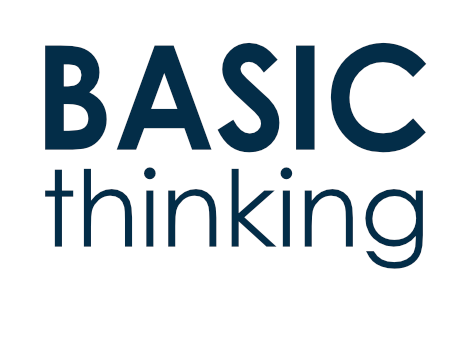Nicholas Carr hat auf strategy busines einen ziemlich guten Artikel über Google veröffentlicht, The Google Enigma, da Google zunehmend als die Paradefirma des 21. Jahrhunderts von immer mehr BWL-Professoren angepriesen wird, deren Organisationsmodell es nachzuahmen gilt, was Nicholas aufgreift und unter die Lupe nimmt. Am Rande: So wußte ich nicht, dass AdWords keine eigene Idee war, sondern von einem anderen Suchmaschinenanbieter namens GoTo bereits eingesetzt wurde, nur eben ohne ein Auktionssystem (das auf die Maximierung der Umsätze ausgelegt ist, betrachtet man den Mechanismus genauer, wie die Bannerpositionen sortiert werden, es entscheidet nicht allein der Preis pro Klick, sondern die Performance!)
Zur vermeintlichen Kostenlosstrategie Googles schreibt Carr sehr treffend:
Because the sales of complementary products rise in tandem, a company has a strong strategic interest in reducing the cost and expanding the availability of the complements to its core product. It“s not too much of an exaggeration to say that a company would like all complements to be given away. If hot dogs became freebies, mustard sales would skyrocket. It“s this natural drive to reduce the cost of complements that, more than anything else, explains Google“s strategy. Nearly everything the company does, including building big data centers, buying optical fiber, promoting free Wi-Fi access, fighting copyright restrictions, supporting open source software, and giving away Web services and data, is aimed at reducing the cost and expanding the scope of Internet use. To borrow a well-worn phrase, Google wants information to be free „ and that is why Google strikes fear into so many different kinds of companies….
It routinely introduces half-finished products and services as online „betas“? because it knows that, even if the offerings fail to win a big share of the market, they will still tend to produce attractive returns by generating advertising revenue and producing valuable data on customer behavior. For most companies, a failed launch of a new product is very costly. For Google, in general, it“s not. Failure is cheap
Es mag sein, dass in Relation zu Googles Finanz- und Manpower die halbgaren Betas nicht sonderlich teuer sind. So wüsste ich dennoch liebend gern, ob ein Produkt wie GMail tatsächlich sich selbst finanziert oder nach wie vor subventioniert werden muss. Ich tippe mal auf das Zweitere. Das auch nochmals zu den vermeintlichen niedrigen Kosten, die so ein Dienst verursacht. Doch Trade Offs entstehen auf einer anderen Seite durchaus, wenn man es nämlich immer wieder schafft, mit Produkten, die nicht dem Google-Anspruch (den die Kunden an Google stellen) genügen, rauszukommen. Noch überstrahlt Googles Branding diesen Produktionsapparat.
Nicholas dazu:
So far, the record has been less than outstanding. Google has introduced dozens of new services, but with only a couple of exceptions, notably Google Maps, they have failed to capture dominant shares of their markets… Many of the most innovative and successful of Google“s new ser vices are, in fact, ones it has acquired rather than created. Those include the hugely popular video-sharing service YouTube… When it comes to innovation, Google is starting to look less like a sower than a harvester, less like an inventor than an exploiter. That“s a natural and perhaps necessary progression for a rapidly growing company, but it belies the firm“s popular image as a wildly successful innovator.
Ich dachte schon, ich sei recht allein mit der Meinung, dass Google nicht mehr wirklich innoviert, was möglicherweise mit der stetig wachsenden Größe der Firma zusammenhängt. Und dadurch sein Geschäft nach wie vor alleine auf dem Suchmaschinenprodukt basiert, was Google verletzlich macht (das gibt Eric Schmidt immer wieder unumwunden zu, was man aber primär wohl als Argument gegen zunehmende Monopolkritiken verstehen kann, denn solange der Kunde nur einen Klick vom Konkurrenten entfernt sei, könne man nicht von einem Monopol sprechen), wenn es nicht anfängt und diversifiziert, was jedes Unternehmen dieser Größenordnung tut.
Auch Nicholas hat in Erinnerung, dass das Google-Management angeblich darauf reagiert hat:
There are signs that Google is coming to recognize this problem. Over the past year, its management has begun tightening the reins on its organization, imposing some restrictions on the company“s freewheeling and free-spending culture. Late in 2006, in what CEO Schmidt called „a big change in the way we run the company,“? it ordered its innovation teams to focus on fewer initiatives and reduce the overall number of products under development by 20 percent
Letztendlich, die Frage stelle ich mir auch die ganze Zeit:
We don“t even know whether its approach to management, and in particular its approach to innovation, is a cause of its success or a product of its success „ a crucial distinction. Second, we don“t know how well Google“s example applies to other businesses.
Nicholas nennt zum Schluss drei maßgebliche Faktoren aus seiner Sicht, die Googles Erfolgsstory ausmachen, überraschende Schlüsse, die er zieht. Zentrale Denkansatz: In a sense, Brin and Page have tried to recreate the graduate school milieu inside the halls of a for-profit corporation
via Photo Matt
Weitere Google-Stories:
– Perez Hilton macht mit YouTubes neuem Werbesystem mit 25 Mio Views rund 5000 USD, wenig oder viel
– wie man GoogleApps nutzen kann, um Usern einen GMail-Account zu schenken und das via Pressemeldung für PR-Zwecke zu nutzen





















